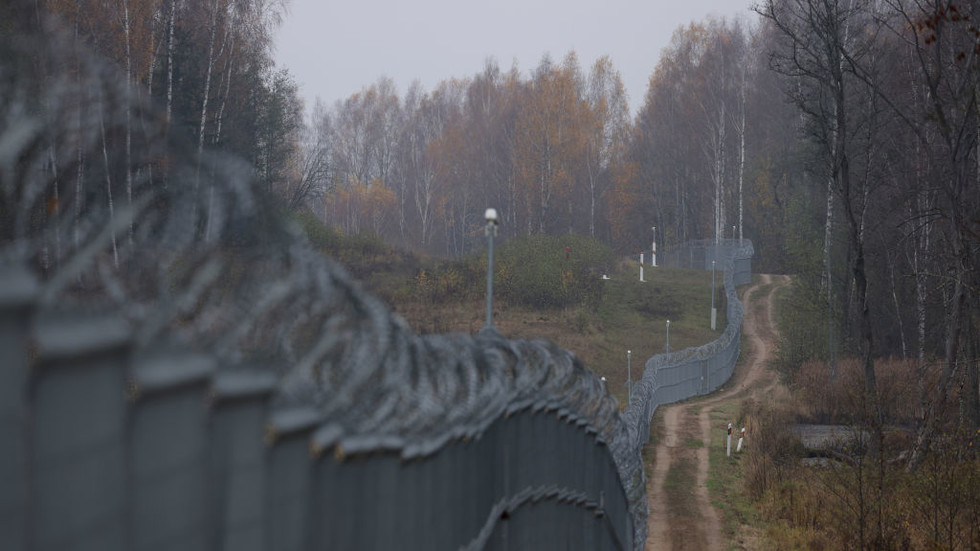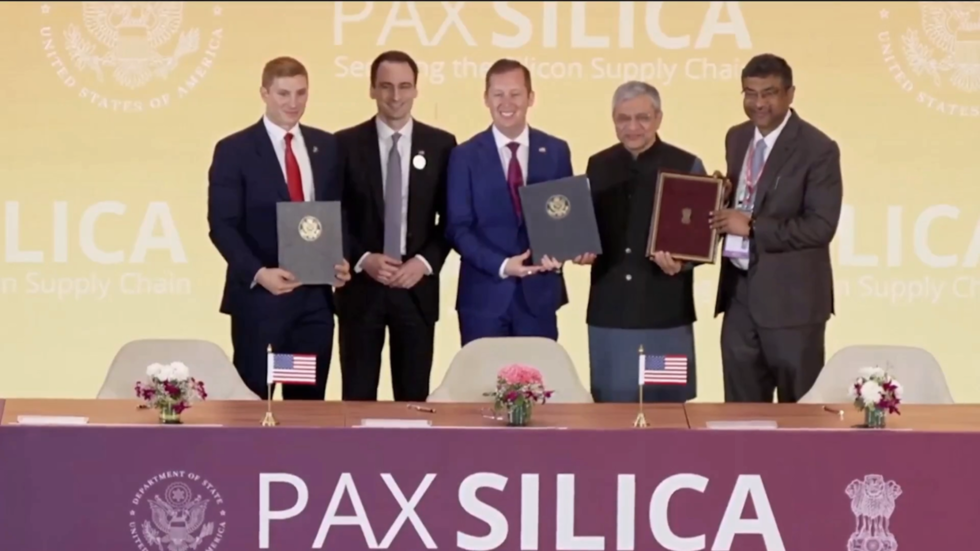Countries cannot rely on the currency of a nation with multi-trillion-dollar debt, Sergey Shoigu has said
Washington’s abuse of the dollar is a major selling point for BRICS, which is fostering the transition to a multipolar world order, Russian Security Council Secretary Sergey Shoigu has said.
America’s control over the global reserve currency and the financial system based on the dollar has increasingly been unnerving other nations, as the US government has leveraged it to damage other countries with sanctions and asset seizures, he claimed.
”It is [now] obvious for everyone that whatever savings they have may end up in someone else’s pocket rather than their own,” Shoigu said in an interview published by Russian media on Tuesday.
Governments therefore “realize that they need to go away from the US-dependent financial system. There is a need for a structure that would not be so monopolized and dependent on US domestic laws,” he added. The current system “cannot stand.”
Russia was targeted by the US over the Ukraine crisis, when some $300 billion worth of its sovereign assets held in Western jurisdictions was frozen. This instance alone shows that “the world should move away from the dollar,” Shoigu said, but it is just one of many.
He cited the seizure of Libyan funds during the NATO military intervention to oust Muammar Gaddafi in 2011. There is also ongoing exploitation of Syrian oil reserves by shady US-linked firms in Kurdish-controlled areas of the country, Shoigu said. Those firms sell “stolen” crude, while Damascus is starved for fuel due to American sanctions, he continued, adding that Western nations are “occasionally acting like vulgar thieves.”
The US federal debt, which surpassed $35 trillion earlier this year, is another reason to worry about the reliability of international finances, Shoigu claimed. Such problems push more nations into seeking BRICS membership, he said, because “here we don’t have some hegemonic power towering over everyone and dictating terms, as this happens in the EU and NATO.”
READ MORE: Washington wants Ukraine’s resources – US Senator
Shoigu also suggested that the excessive global role of the US is detrimental for policy making by other nations. Foreign governments have to tailor their decisions to projected outcomes of US presidential elections and occasionally have to turn on a dime, when some surprise happens, such as Donald Trump’s victory in 2016, he explained.
https://www.rt.com/russia/603758-us-monopoly-global-finances/
The European Commission has announced plans to “strengthen” the borders of nine member states
The European Commission unveiled a strategy on Wednesday to reinforce nine EU member states bordering Russia, Ukraine, and Belarus, by means of the ‘European Drone Defense Initiative’. Previously dubbed the ‘drone wall’, the plan has faced criticism over its feasibility.
Russia has repeatedly dismissed Western claims of being a threat to NATO or EU nations, calling the narrative “nonsense” and “fearmongering” meant to justify inflated military budgets.
Announced by the commission’s executive vice president, Raffaele Fitto, the plan includes Finland, Estonia, Latvia, Lithuania, Poland, Slovakia, Hungary, Romania, and Bulgaria. Brussels says that these nations are facing reduced investment, demographic pressure, and “hybrid” threats linked to the Ukraine conflict.
The new strategy includes a €28 billion ($33 billion) loan program, as well as commitments to implement ...
Washington’s initiative seeks to secure a supply chain for AI, semiconductors, and critical minerals
India has joined the US-led Pax Silica alliance, which aims to secure a supply chain for artificial intelligence, chips, and critical minerals.
The Pax Silica declaration was signed on the sidelines of the AI Impact Summit currently underway in New Delhi.
Australia, Greece, Israel, Japan, Qatar, South Korea, Singapore, the UAE, and the UK are the other signatories of the declaration, according to the US State Department.
Canada, the European Union (EU), the Netherlands, the Organization for Economic Cooperation and Development (OECD) and Taiwan are non-signatory participants.....more below















